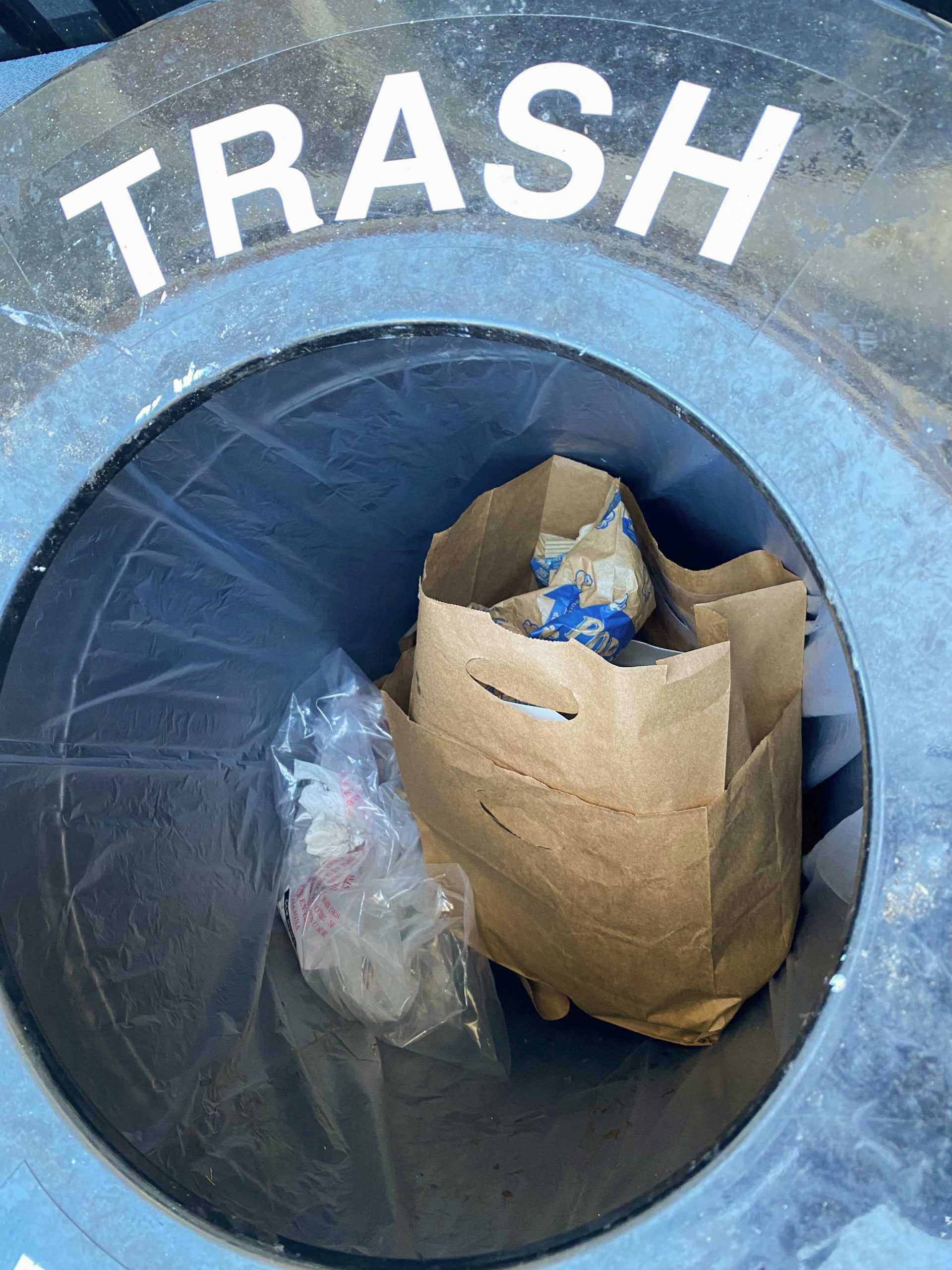Health and safety protocols regarding food packing and sanitation implemented to prevent the spread of COVID-19 are creating increased waste on campus.
“The nature of our safety measures, grab-and-go dining, wipes, disposable masks, paper towels, etc., have strained the container capacity,” Ken Ogawa, executive director of the Office of Facilities Management, wrote in an email to The Hawk.
The grab-and-go disposable dining containers contribute to the increased waste on campus. All meals are now pre-portioned into recyclable or biodegradable containers, in order to prevent the spread of COVID-19, according to Kevin Bargeron, marketing manager of Aramark at St. Joe’s. All utensils are also recyclable.
However, the containers are often not broken down before disposal, contributing to the noncompressible waste problem, Ogawa wrote.
“In addition to placing material in the correct container, we really need the community to ensure cardboard boxes are broken down before being placed in a recycling container to save space,” Ogawa said.
In addition to disposable dining containers, sanitizing wipes are also contributing to the increased waste on campus, Ogawa said. According to the Hawk Hill Ready Plan, each classroom on campus is stocked with at least one reusable tub of 180 cleaning wipes, which students and faculty are asked to use upon entering a classroom. Ogawa said over the past two weeks there were, on average, 20-25 tub exchanges per day, five days per week, which significantly affects waste volume.
“It is more of a volume issue than an amount or weight issue,” Ogawa said. “We are generating a lot of light, bulky trash like paper towels.”
Bargeron said he acknowledged the increased amount of waste from COVID-19 protocols.
“We are keenly aware of the amount of disposable item waste we are generating and how to balance that with improving our carbon footprint,” Bargeron said.
Meg Kloss ’19, a former University Student Senate member, is a strong supporter of reducing personal impact on waste production. She said she supports the protocols the university is following to keep everyone safe, but she thinks students can do a lot to help the impact.
“You have to care, and you have to have a basic understanding of the effects of waste, because if you don’t see the effects then you’re not going to be motivated to change your habits that contribute to it,” Kloss said.
Reducing one’s personal waste looks different for everyone, and Kloss said it is a journey for each individual. Nevertheless, the outcome of bettering the community is the same.
“One person really does make a difference if everyone chooses one area of waste to focus on,” Kloss said.




















































